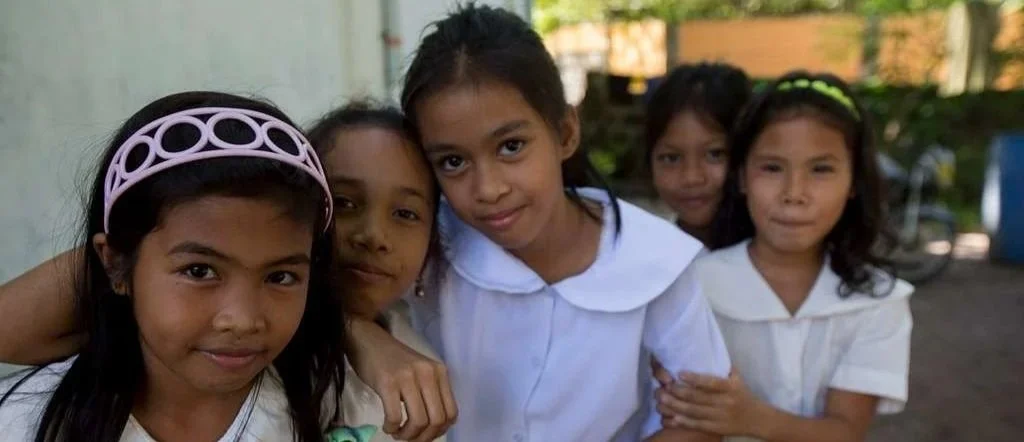Building a Brighter Future, One Seat at a Time
Every October 11, the world celebrates the International Day of the Girl Child. A moment to recognize the rights of girls, the challenges they face, and the importance of empowering them through education and opportunity.
For us, this day carries deep meaning. We believe that every girl deserves access to quality education, because learning opens doors to a good job, a stable income, and a brighter, more independent future. Education is not just a right; it’s the foundation for equality and progress.
By: The Plastic Flamingo — Juliette Dastre-Vigne
Girls’ Education in the Philippines
In the Philippines, access to education has significantly improved over the years. The female literacy rate now reaches 99.7%, and about 95% of girls are enrolled in secondary school. Yet, challenges remain, especially in rural areas, where many schools still lack proper facilities and where some families struggle to afford school supplies or transportation.
A good education requires more than access, it depends on safe, well-equipped learning environments where every student can thrive. Unfortunately, many schools across the country still face severe shortages of basic classroom furniture and infrastructure.
Kids are gathered in front of the blackboard at a dump site school in Liloan
©drinkteatravel - falling in love with teaching in Philippines
According to the Second Congressional Commission on Education (EDCOM 2) report, approximately 5.1 million students in the Philippines are « aisle learners », children forced to sit in hallways due to a lack of chairs and classroom space. In some regions, such as Central Visayas, schools have reported needing at least 65,000 additional chairs to accommodate all students. Overcrowded classrooms and the lack of proper seating often force children to share desks or sit on the floor, creating uncomfortable and less effective learning conditions. Investing in proper learning spaces, from desks and chairs to clean restrooms and electricity, is essential to ensure that every Filipino children not only goes to school but has the environment they deserve to succeed and reach their full potential.
Turning Plastic Waste into Learning Opportunities
That’s why we are proud to take part in creating better conditions for learning. Through the collection and recycling of plastic waste, we design and produce 100% recycled plastic school chairs durable, practical, and sustainable.
Each chair we make helps address two urgent challenges at once: reducing plastic pollution and improving access to safe, well-equipped classrooms. What was once discarded plastic is now being transformed into something with purpose : a tool for education.
Thanks to the support of our partners, The Plastic Flamingo (The Plaf) have already created and donated 3,500 school chairs to classrooms across the Philippines. These chairs are now being used by students in both urban and remote communities, helping them study comfortably and focus better in class.
But each chair represents more than just a seat. It stands as a symbol of opportunity, dignity, and hope proof that when sustainability meets education, we can create real change. Together, we are not only cleaning the environment, but also helping shape a brighter, more equitable future for the next generation of learners.
Empowering Girls, Sustaining the Planet
As we celebrate this International Day of the Girl Child, we’re reminded that empowerment begins with access : access to education, to opportunities, and to safe and sustainable spaces to learn. By transforming plastic waste into something that supports education, we’re not only protecting the planet but also helping to build a future where every girl can learn, lead, and thrive.
Let’s continue to take action. For girls, for education, and for a sustainable tomorrow.
✨ Join us in this mission. Become a partner and help us turn plastic waste into thousands more seats for learning. Together, we can empower the next generation.
📩 hello@theplaf.com
Source: Falling in Love with teaching in Philippines — Drink Tea & Travel
Special Report: Same school problems
Philippines Statistics Authority — Cordillera Administrative Region




